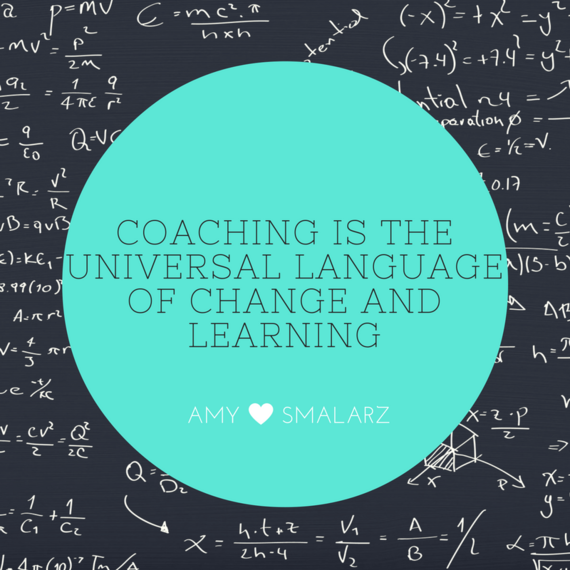This is not a phrase uttered by an aspiring athlete.
Not a phrase uttered by a professional athlete...
Or professional musician...
Or aspiring artist...
Or professional writer or speaker.
So why is it that I hear this from countless mid-level Managers, Directors, Executive Directors and even Vice Presidents of small and large companies?
Why is it that my boys' soccer coach is deemed as having tons of amazing knowledge and is there to help make them better soccer players while when someone at work says they have a Coach there is the thought of "uh-oh, I wonder what they did wrong?' Why is it that coaches of kids and sports teams are held in high esteem while people who coach and mentor in the workplace have a stigma attached to them?
I recently read Sarah Hepola's book Blackout and toward the end of the book, she shares this insight:
"We underscore the false belief that people who seek help are failures and people who don't seek help are a success. It's not true. Some of the healthiest, most accomplished people I know went to both rehab and therapy..."
And while I am not saying that my Executive Coaching or other programs are therapy, they are a mechanism for you to give yourself time to breathe, reflect and work on your own growth. Why wait to be on your last leg at work or almost out the door to ask for help? Why is your hiring or your organization giving you a coach a sign of trouble?
This was a topic of a recent lunch conversation I had with a friend. She shared that one of her colleagues had become certified in a coaching program and asked if she would be a "beta tester" which we all know is code words for "I know I'm certified but I would like to practice with a friend before going out to the world with this!"
She readily agreed because she was curious about the program and what her friend had learned. And during lunch, do you know what she said?
"This coaching stuff? It's really valuable. I wish I had learned about this sooner! It's not just for those who are in trouble...! If more people in my organization had access to this or a program like it...man, there would be a lot less ["stuff"] to deal with."
Her words, not mine. To me, she was preaching to the choir. I have been a life-long learner and continue to be. At any given time, I am enrolled in at least one on-line course (and that's a good month - just ask my husband), I am reading 2-3 books and always asking questions. Yes, asking questions is one of my favorite past-times. But it's how I learn. And to quote Cadey Charfen from my Podcast interview:
"Always stay curious."
But back to my original question: Why is there a stigma attached to Coaching as we get older?
Honestly, I don't know and if you do and/or have thoughts on the subject, please share your thoughts and experiences - by either commenting here or emailing me directly at amy@amysmalarz.com
So, until then here is my take on some coaching myths.
1. Coaching is for those who need help
Yes! What coaching isn't for someone who needs help?! I am not perfect, nor do I pretend to be. So, what's wrong with getting some guidance and information from someone who knows something I don't? You can only grow from such experiences.
2. I will never be as good as 'them'
Oh, the illustrious 'them.' It seems to pop up more and more - at least as I get older. While I have words I could share with you on this myth, instead, watch this video HERE. It captures the ideas of "I'm not better than anyone else and no one is better than me."
3. Coaching is for 'losers.'
Tell that to Tom Brady [yes, I'm a Pats fan and LOVING this season] or Michael Jordan or Alex Charfen or Tony Robbins or...insert name of any truly successful person here. Each of them had and most likely still has a coach or mentor they look up to. Someone who is there to challenge them, push them, support them...to help them be better people and to contribute more.
You don't need to be failing to get a coach. Actually, it's better to get a coach to help you get better from a positive place. To help you become more aware of your strengths and develop them even more deeply.
Now, you do need to be careful and cognizant of the coach you choose...and that is the topic for my next article.
But until then...remember...
"Coaching is the universal language of change and learning."

